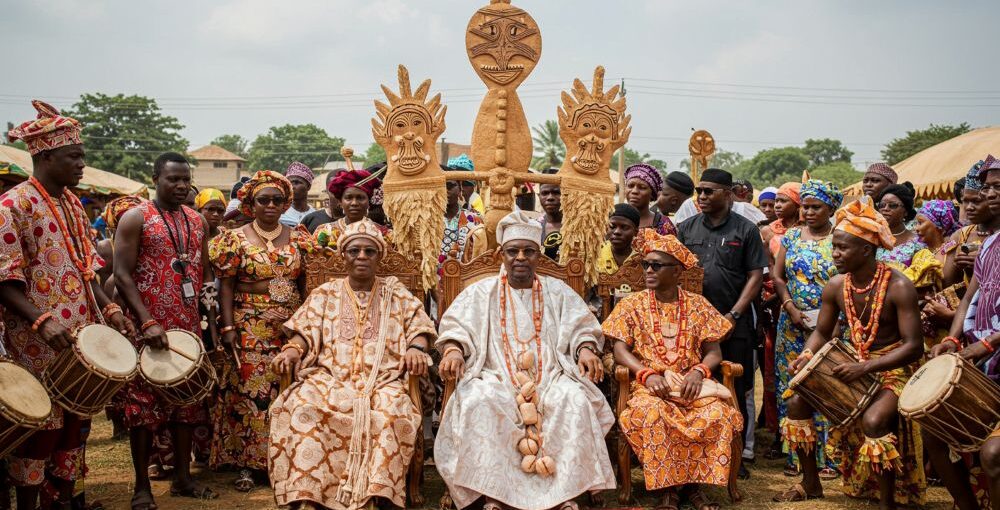Introduction: A Festival of Ancestry, Unity, and Royal Splendor
Every July, the city of Warri, in Delta State, transforms into a vibrant canvas of history, tradition, and community spirit as the Awankere Festival unfolds. Rooted in the customs of the Itsekiri people, the festival—also known as the Warri Day Celebration—pays tribute to the ancestors of the Warri Kingdom and renews the communal bonds that have held this proud people together for centuries.
Held under the authority of the Olu of Warri, the festival is not just a cultural spectacle—it is a living tribute to Itsekiri heritage, monarchy, and spiritual continuity.
Historical Origins of Awankere Festival
The name “Awankere” is derived from the Itsekiri phrase “awan k’ere”, which means “we are gathering” or “we are coming together.” Traditionally, this was a period for cleansing the land, honoring ancestors, and marking the passage of time through collective celebration.
The Olu of Warri, the revered monarch of the Itsekiri people, plays a central role in the festival. His presence at the climax of the event symbolizes cultural continuity, ancestral reverence, and the unbroken lineage of the kingdom’s traditional leadership.
Highlights of the Awankere Festival
- 🕊️ Ritual Cleansing and Ancestral Homage: The festival includes spiritual rites that cleanse the community of negativity and reconnect the people with their ancestors. This underscores the Itsekiri belief that the living and the departed share a spiritual ecosystem.
- 👑 Royal Procession of the Olu of Warri: The highlight is the public appearance of the Olu, adorned in traditional regalia, blessing his subjects and reinforcing royal authority and unity among Itsekiri people.
- 💃 Cultural Parades and Performances: Troupes of dancers, masqueraders, drummers, and singers perform age-old routines passed down through generations. These displays serve both as entertainment and cultural storytelling.
- 🛶 Water Rituals and River Symbolism: Given the Itsekiri people’s strong connection to rivers and the Atlantic, water plays a symbolic role in the festival—representing life, fertility, and the journey of the ancestors.
The Role of the Olu of Warri
The Olu of Warri is not just a political figure—he is seen as a divine representative, a cultural guardian, and a symbol of unity. During Awankere, his grand entrance and royal blessings are deeply anticipated. This moment brings together Itsekiris from Nigeria and the diaspora, symbolizing renewal and reaffirmation of their shared identity.
Modern Significance of the Festival
Awankere has evolved into a festival that does more than preserve culture—it promotes education, business, tourism, and peace-building in the Niger Delta. The festival draws dignitaries, scholars, cultural enthusiasts, and tourists, offering an opportunity for the Itsekiri nation to reassert its historical significance on the Nigerian cultural map.
In a region often plagued by unrest, Awankere serves as a symbol of resilience, peace, and cultural pride.
Conclusion: Awankere as a Cultural Beacon
The Awankere Festival is not just about celebration. It is a ritual of belonging, a visual and spiritual reminder that heritage is not forgotten but reborn each year through dance, memory, ritual, and royal presence. It is a festival that binds the past to the present—and projects pride into the future.
For the Itsekiri people, Awankere is more than tradition.
It is identity. It is unity. It is legacy.


